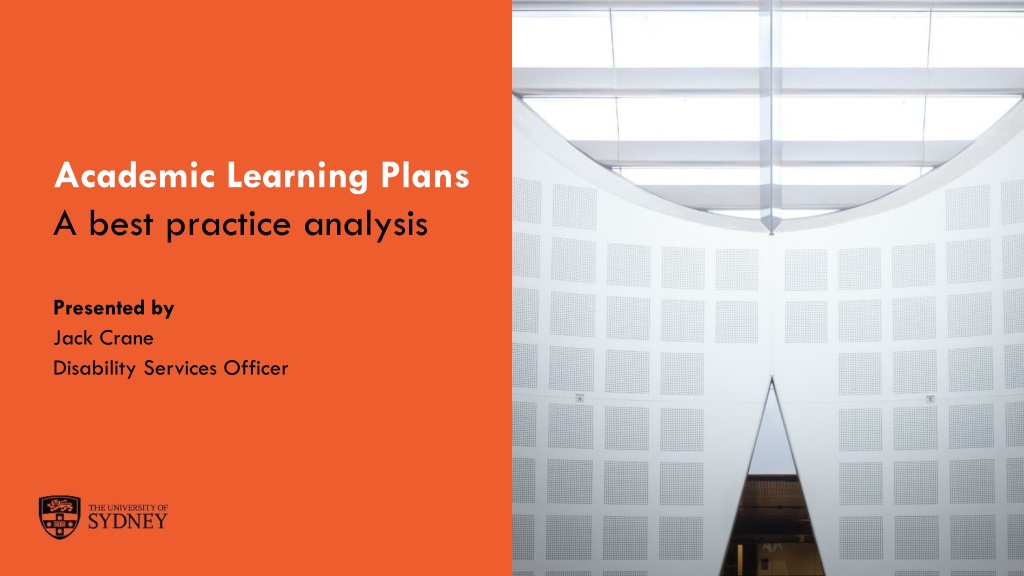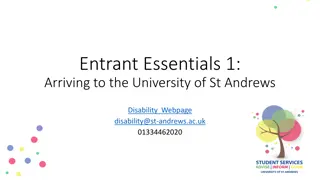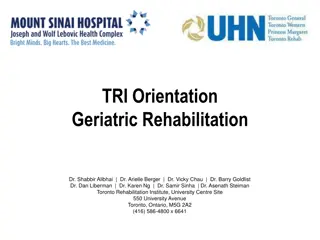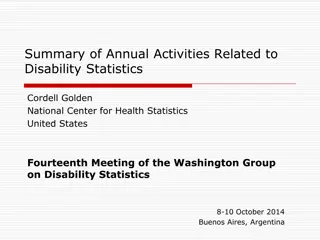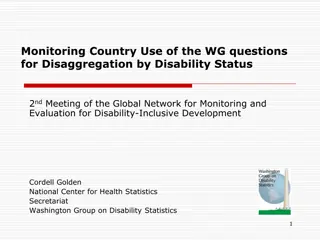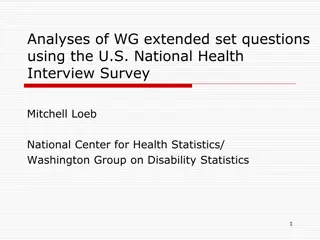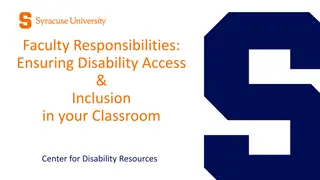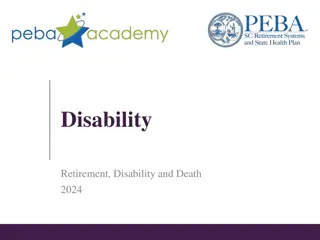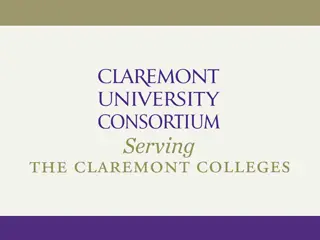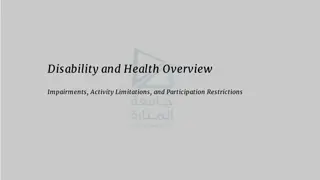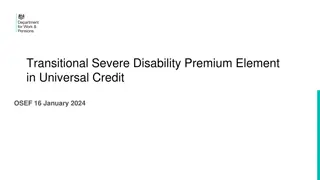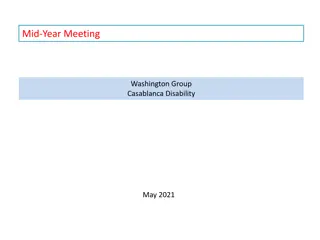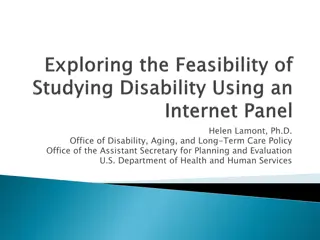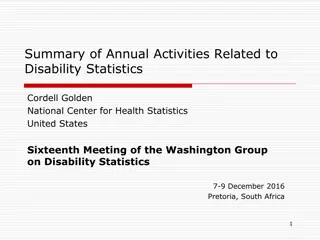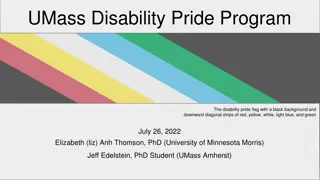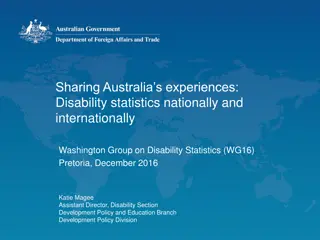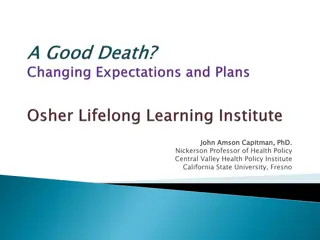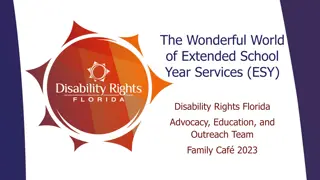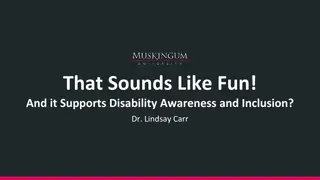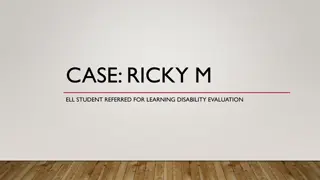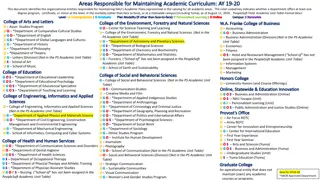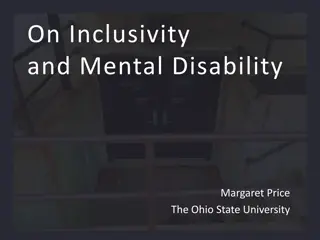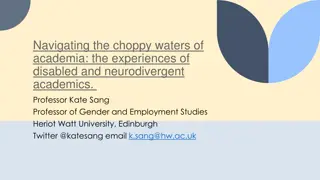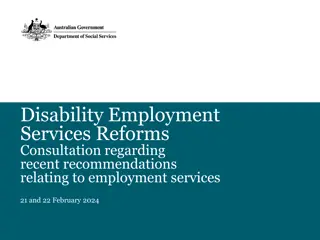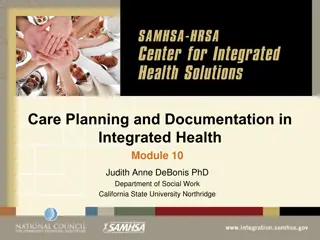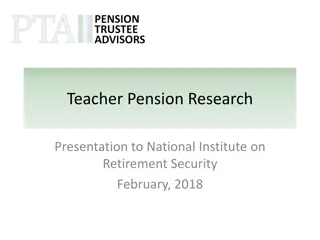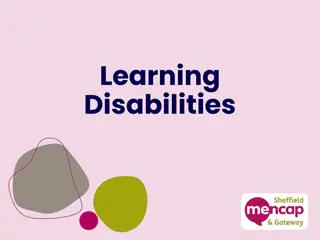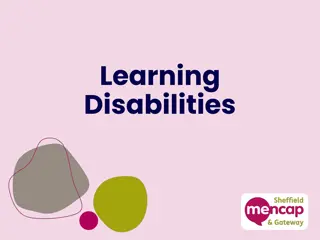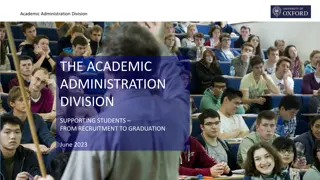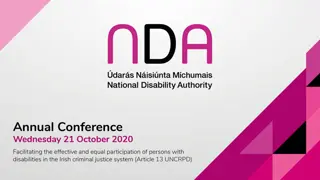Best Practices for Academic Learning Plans in Disability Services at The University of Sydney
Analysis of academic learning plans for students with disabilities, presented by Jack Crane, Disability Services Officer at The University of Sydney. The study explores the creation, implementation, and review of these plans, with a focus on enhancing accessibility and support for students. Various types of access plans, stakeholder involvement, plan creation process, validity, and review procedures are discussed. Recommendations are provided based on research findings to improve the effectiveness of academic learning plans.
Download Presentation

Please find below an Image/Link to download the presentation.
The content on the website is provided AS IS for your information and personal use only. It may not be sold, licensed, or shared on other websites without obtaining consent from the author. Download presentation by click this link. If you encounter any issues during the download, it is possible that the publisher has removed the file from their server.
E N D
Presentation Transcript
Academic Learning Plans A best practice analysis Presented by Jack Crane Disability Services Officer The University of Sydney Page 1
In the beginning Professional background AustEd listserve (2017) Learning Plans (2012) The University of Sydney Page 2
Presentation overview Results Reflection Recommendations The University of Sydney Page 3
Response Overview Institution ( 12) University TAFE or Equivalent ( 18) University TAFE or Equivalent 33 12 39 4 Using access plans ( 12) Yes No ( 18) Yes No 82% 18% 95% 5% The University of Sydney Page 4
Name of the plan Learning Access Plan Access Plan NA Other The University of Sydney Page 5
Other plans Included the term 20 18 16 14 12 10 8 6 4 2 0 Disability Learning Education Access Adjustment Plan The University of Sydney Page 6
Creating the plan Standard throughout 1. Student provides documentation prior to/during appointment 2. Plan is created after registration meeting/s with student (sometimes support person or parents attend) 3. Consultation with Academic staff for non-standard adjustments 4. Ongoing support each semester for complex cases The University of Sydney Page 7
Creating the plan cont. Variations Student and DA sign the plan Counsellors involved in creating plan Plan is sent to student/course coordinator for approval* No appointment required* Student applies for adjustments via Campus Director who seeks approval from Program Directors* Inherent requirements/faculty fact sheets reviewed during apt. Appointment option via Skype/Zoom The University of Sydney Page 8
Plan validity and review date Every semester Every year Every new program Depends on nature of disability The University of Sydney Page 9
Plan storage Hard copies and digital Files Digital files CRM Other The University of Sydney Page 10
Distribution of the plan Student to distribute Disability services distributes on behalf of student Faculty/teaching school distributes Distributed via CRM Other The University of Sydney Page 11
Information contained (based on 24 plans) 86% Contact Details 75% Instructions 75% 49% Legal information 58% 87% Disclosure 71% 95% Reasonable adjustments 100% 0% 10% 20% 30% 40% 50% 60% 70% 80% 90% 100% 2012 2018 The University of Sydney Page 12
Legal information (based on 24 plans) Both DDA (1992) and DSE (2005) DDA (1992) DSE (2005) No legal information The University of Sydney Page 13
Legal information cont Review of the Disability Standards for Education (2015) Recommendation 8: That the Australian Government work with State and Territory governments to provide consistent guidance on best practice approaches to planning for personalised learning, including guidance on the use and content of individual learning plans (or equivalent) and the need for periodical review. Planning for Personalised Learning and Support national resource (2015) The University of Sydney Page 14
Disclosure (based on 24 plans) ( 12) Optional Required No disclosure ( 18) Optional Required No disclosure 57% 30% 24% 32% 41% 29% Optional Required No disclosure 25% 11% 5% The University of Sydney Page 15
Feedback from students through informal reporting Positives + Centralises and clarifies process of acquiring adjustments + Facilitates difficult conversations + Takes pressure of student to forge their own path Negative - Nervous/distressed students having to approach academics - Kickback from academics regarding adjustments - Identification as other The University of Sydney Page 16
Recommendations Unification of plan name Benefits for all parties Automation of dissemination + Time saved from Support Service + Instant access for teaching staff - Relies on up to date staff details on server - Limits interactions and rapport between officers and student (potential implications on retention and success) - Students don t always want their plan communicated The University of Sydney Page 17
Recommendations cont. Additional information for academic staff Links to teaching strategies and additional resources Information on training offered at institution Clear contact details for Disability Staff Notation of legal requirements DDA (1992) and DSE (2005) The University of Sydney Page 18
Questions? Jack Crane Disability Services Officer 02 8627 8422 jack.crane@sydney.edu.au The University of Sydney Page 19
